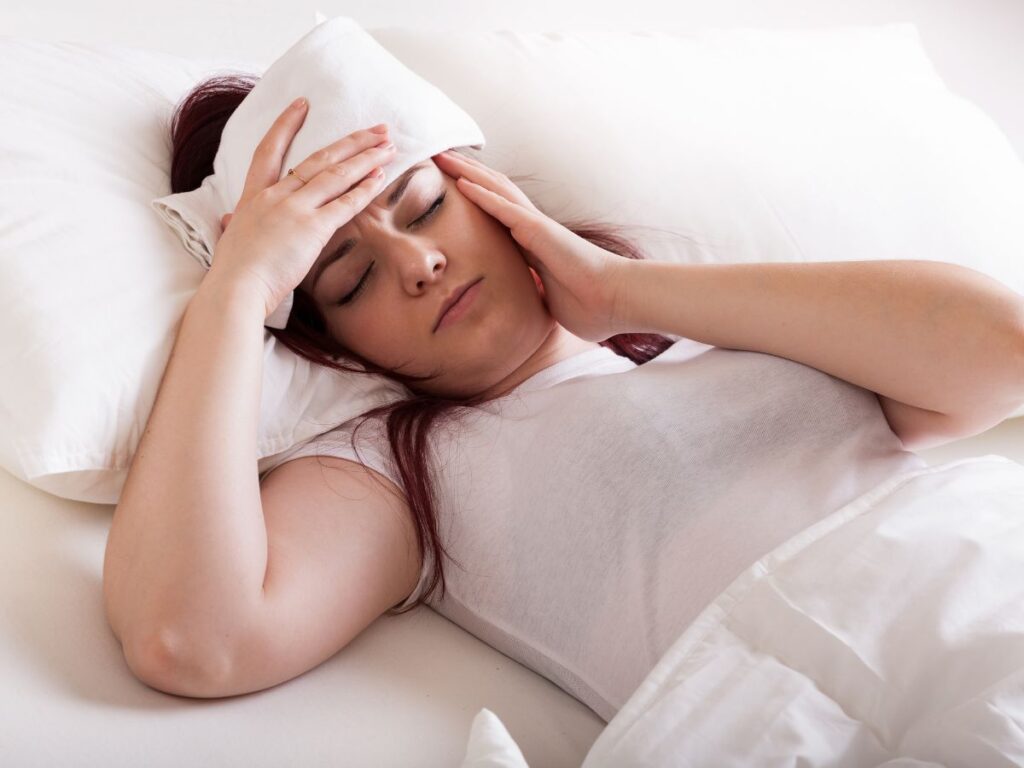Insomnia and Stroke
According to a study, there is a High Risk of Stroke or raises the risk of stroke due to Lack of Sleep. Everyone wants to sleep a good and deep sleep which is also necessary for our good health.
Unfortunately, due to our hectic schedules and a fast-running world where our health is the least priority, many individuals are struggling with Insomnia. Insomnia is called sleep disorder which is also called difficulty in sleeping.

The cause of insomnia in our life is known, and recent research has shown a relationship between insomnia and an increased risk of stroke. Here we will explain the findings of this study, explore the connection between Insomnia and Stroke, and discuss the implications for individuals who experience sleep disorders.
Let’s explore the relationship between insomnia and the risk of stroke.
Knowledge of Insomnia
As we said earlier, Insomnia is a common sleep disorder or sleepiness which affects millions of people and people have trouble sleeping. It can manifest in various ways, including difficulty in sleeping, staying asleep throughout the night, or waking up too early and being unable to return to sleep or uncomfortable sleep. Insomnia often leads to daytime fatigue, difficulty in focusing, and impaired performance in our day-to-day life.

Types of Insomnia
According to research, we can divide insomnia into two different types, the first type is Primary Insomnia and the second type is Secondary Insomnia.
- Primary Insomnia: This type of Insomnia is not related or linked to any health condition or causes or creates any health issues.
- Secondary Insomnia: This means you have trouble sleeping because of a health condition (like asthma, depression, arthritis, cancer, or heartburn); pain; medication; or substance use (like alcohol).
Due to Lack of Sleep – Secondary causes of Insomnia include:
- Stress, depression, and anxiety
- High medicine dose for Colds, Allergies, Depression, High Blood Pressure, and Asthma.
- Discomfort at night
- Heavily usage of Caffeine, tobacco, or alcohol
- Hyperthyroidism and other endocrine problems
- Other sleep disorders, like sleep apnea or restless legs syndrome
- Pregnancy and Alzheimer’s disease or dementia
The Study on Insomnia
A recent study published in a reputable US Health medical journal examined the relationship between insomnia and the risk of stroke. The study followed a large group of participants over several years, monitoring their sleep style and health routines. The results were serious and alarming shows that individuals with chronic insomnia were found to have a significantly higher risk of experiencing a stroke compared to those without insomnia.

Mechanisms Behind the Link of Insomnia and Stroke
While the exact mechanisms linking insomnia and stroke risk are still being studied, several factors are thought to contribute to this association:
Sleep Disruption and Blood Pressure
Insomnia often leads to poor sleep quality and increased sleep fragmentation, which can disrupt the body’s natural circadian rhythm and negatively impact blood pressure regulation. High blood pressure is a significant risk factor for stroke, and chronic insomnia may contribute to its development or exacerbation.
Inflammation and Metabolic Dysregulation
Sleep disturbances, including insomnia, have been associated with increased inflammation and metabolic dysregulation in the body. These factors can contribute to the development of cardiovascular diseases, including stroke.
Impact on Lifestyle Factors
Addressing Insomnia for Stroke Prevention
Considering the potential impact of insomnia on stroke risk, it is crucial to address and manage insomnia effectively. Here are some strategies that may help:
Establish a Consistent Sleep Routine: Stick to a regular sleep schedule, going to bed and waking up at the same time every day, even on weekends.
Create a Sleep-Friendly Environment: Make your bedroom conducive to sleep by ensuring it is dark, quiet, and at a comfortable temperature.
Practice Relaxation Techniques: Engage in relaxation techniques such as deep breathing, meditation, or progressive muscle relaxation before bedtime to calm the mind and promote sleep.
Limit Stimulants and Electronics: Avoid consuming caffeine and using electronic devices close to bedtime, as they can interfere with sleep.
Consider Cognitive-Behavioural Therapy for Insomnia (CBT-I): CBT-I is a specialized form of therapy that focuses on identifying and modifying thoughts and behaviors that contribute to insomnia.

Conclusion
In conclusion, Insomnia is a major cause of serious health issues, also Insomnia is not only a frustrating sleep disorder but a potential risk factor for stroke. The recent study shows chronic insomnia with an increased risk of stroke highlighting the importance of addressing sleep disturbances for long-term health.
By understanding the potential mechanisms behind this link and implementing strategies to manage insomnia effectively, individuals can take proactive steps to reduce their stroke risk and promote overall well-being.
Regularly Asked Questions
Q: Can treating insomnia reduce the risk of stroke?
A: While more research is needed to establish a direct cause-and-effect relationship, effectively managing, and treating insomnia may contribute to reducing stroke risk by improving overall sleep quality and addressing associated risk factors.
Q: Are there any natural remedies or supplements that can help with insomnia?
A: Some individuals find certain natural remedies or supplements, such as melatonin or herbal teas, helpful for improving sleep. However, it’s essential to consult with a healthcare professional before using any supplements, as they may interact with medications or have potential side effects.
Q: Can lifestyle modifications alone alleviate insomnia?
A: Lifestyle modifications, including adopting healthy sleep habits, can significantly improve insomnia symptoms for many individuals. However, in chronic cases, it may be beneficial to seek professional guidance, such as cognitive-behavioural therapy for insomnia (CBT-I), to address underlying factors and develop effective strategies.
Q: How can I differentiate between occasional sleeplessness and chronic insomnia?
A: Occasional sleeplessness is normal and often related to temporary factors like stress or environmental changes. If you suspect you have chronic insomnia, it’s advisable to consult with a healthcare professional for proper evaluation and guidance.isk o


